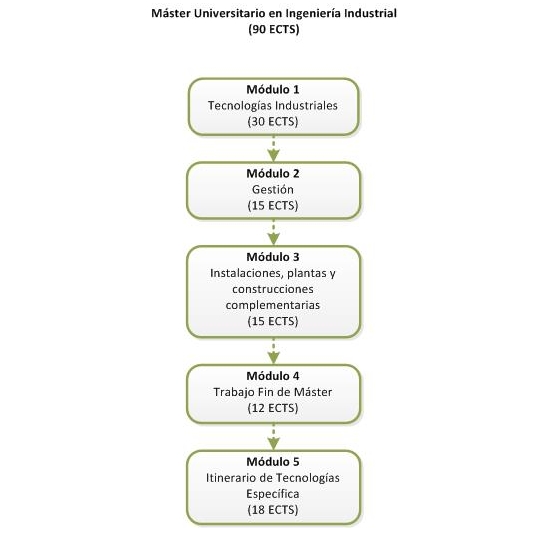Structure and distribution of credits
{{pre.error[0].message}}
{{pre.error[0].message}}
| Course | Basic | Mandatory | Optatives | Curricular internships | End of Studies Dissertation | Total |
|---|---|---|---|---|---|---|
| {{curso}}º | {{c.credects}} | {{c.credects}} | {{c.credects}} | {{c.credects}} | {{c.credects}} | {{creditos | map: 'credects' | toArray | sum}} |
| Total | {{ct.credects}} | {{ct.credects}} | {{ct.credects}} | {{ct.credects}} | {{ct.credects}} | {{cre.creditos_totales | map: 'credects' | toArray | sum}} |
The curriculum has 90 ECTS, out of which 60 credits correspond to compulsory subjects and 12 credits to the Master’s Thesis.
The curriculum also has a set of elective subjects to complete the different pathways of each technology (Specific Technology Pathway). This set consists of six subjects aimed at balancing the different competencies of the Technologies from which students of different Bachelor's Degrees of the industrial field (Industrial Electronics, Electrical, Mechanical, Industrial Chemistry) come. In this way, students may opt for 4 of the 6 subjects offered to complete their curriculum.
Therefore, and because of the initial training that they have recognised in a given technology by reason of the degree they have already completed, all students will acquire knowledge and skills in the remaining technologies by completing four subjects of 4.5 ECTS, thus completing their training with a total of 18 ECTS.
